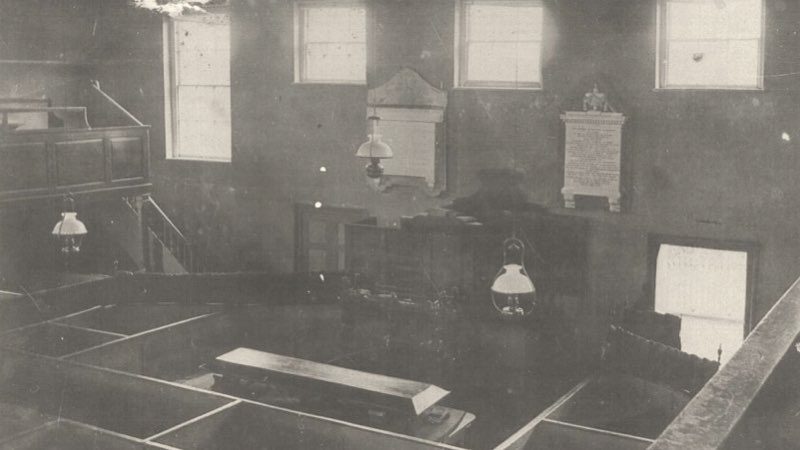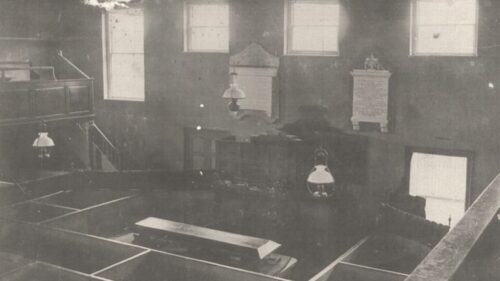
The Life And Ministry Of Job Hupton
John Julian, “Dictionary of Hymnology”:
Job Hupton was born in 1762, at a small village near Burton-on-Trent. He was brought up to work at a forge, but after his conversion through the preaching of the Rev. John Bradford, one of Lady Huntingdon’s ministers, whom he heard at Walsal, he began to preach; and after a few months at Trevecca College, was himself employed by Lady Huntingdon for some years as one of her itinerating ministers. Having changed his views on the subject of Baptism, he became, in 1794, pastor of the Baptist church at Claxton, in Norfolk, where he laboured with much success for many years. He died Oct. 19, 1849.
Hupton wrote much both in prose and verse, his compositions appearing in the Gospel Magazine under the signatures of “Ebenezer,” “Eliakini, and “J. H—n.” His prose writings were collected and published in 1843, under the title The Truth as it is in Jesus. In 1861, D. Sedgwick reprinted his Hymns & Spiritual Poems, with a brief memoir.
Of his 22 hymns three only are in common use:—
1. Come ye saints and raise an anthem. Praise.
2. Glorious, high, and lofty One. The Dominion of God. In Gospel Magazine, June, 1806.
3. Jesus, Omnipotent to save. Lent.
The first of these, “Come ye,” &c. (q.v.), in its altered form by Dr. Neale, is in extensive use, the rest ore in a few hymn-books only. Hupton had a bold and vigorous imagination and great command of language. If in early life he had enjoyed better educational advantages, he would probably have attained to eminence as a poet. [Rev. W. R. Stevenson, M. A.]
Henry Burrage, “Baptist Hymn Writers And Their Hymns”:
In a village on the borders of Needwood Forest, near Burton-on-Trent, Staffordshire, Mr. Hupton was born in March, 1762. In early life he received deep religious impressions from the teachings of a pious mother, yet he would not allow them to influence his life. On the contrary, he hardened his heart against them. From his early years, working at a forge, he passed his leisure hours in the society of evil companions; but the prayers of his mother followed him. When twenty-two years of age, while in a public house, his conscience was awakened, and he was led to see his lost condition. Shortly after, at Walsall, near Birmingham, the truth was still more deeply impressed upon him by a sermon preached by Rev. John Brad- ford, curate of Frilsham, Bedfordshire, one of Lady Huntingdon’s preachers; but still he did not find acceptance with God. Anxious days followed, but at length, while at his forge, the darkness passed from his mind as he was meditating upon the words of Isaiah, “Arise, shine, for thy light is come.”
With his conversion there came a call to the Gospel ministry, and he spent a few months at Lady Huntingdon’s college in Trevecca, Wales. For several years he devoted himself to evangelical work in different parts of the country. In September, 1794, having adopted Baptist views, he accepted a call to the pastorate of the Baptist church in Claxton, Norfolk. Here he had a long and useful ministry. He died October 19, 1849, having been a preacher of the Gospel more than sixty-four years.
From 1803, to 1809, he wrote much in poetry and prose for the Gospel Magazine. A few years before his death his prose contributions to the Magazine were brought together in a volume entitled “The Truth as it is in Jesus.” His “Hymns and Spiritual Poems,” with a brief memoir, were collected and published in 1861, by Mr. Daniel Sedgwick. “Some of his poetry,” says Dr. Hatfield, “has great merit.”
Job Hupton (1762-1849) was a Strict and Particular Baptist preacher and hymn writer. In 1794 he was appointed pastor of the church meeting at Claxton, Norfolk, a position he held for fifty-five years. He opposed the heretical teachings of Andrew Fuller. His views were framed in a little book entitled, “A Blow Struck At The Root Of Fullerism”. He also wrote many hymns, some of which appeared in the Gospel Magazine under the signatures “Ebenezer”, “Eliakini”, and “J. H.—n.”.




